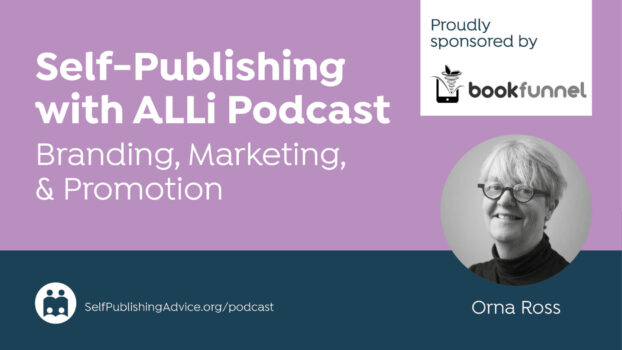 Our decision here at The Alliance of Independent Authors (ALLi) to hire a rights agent to represent our members' books in translation markets has raised the hackles of those who think an indie author is not allowed to make publishing partnerships.
Our decision here at The Alliance of Independent Authors (ALLi) to hire a rights agent to represent our members' books in translation markets has raised the hackles of those who think an indie author is not allowed to make publishing partnerships.
Snarky comments emerging across the Internet, of the indies-admit-they-are-not-so-indie-after-all variety, show that there is still fundamental misunderstanding of what it means to be an indie author or self-publisher.
Here at ALLi, our definition of an indie is one who recognises the writer as the primary driver of the book, not just in getting it written but also in getting it published and getting it read; one who meets other players in the publishing process – distributors, publishers, agents, marketeers, booksellers – as partners who support the writers efforts. (This is in opposition to trade publishing which sees the writer as a resource to be mined, a ‘content provider').
So what of translation rights? As one of our members, Steena Holmes, asked on our closed member-only Facebook Group: “Do we NEED an agent for foreign rights? I am hearing about this so much but I'm wondering if this is something us indies' can learn to do on our own or if we really do need an agent for it?”
Our answer here at ALLi is a resounding YES, we do.
Here's why.
a) You need to sell foreign rights widely for it to be worthwhile. Individual deals are not large, added together they can make a real difference to author income, but that requires a knowledge of different territories and contact cultivation throughout the world.
b) There are great varieties across those different territories — selling rights in Japan is a very different proposition to selling rights in Germany. One needs an appreciation of cultural differences as well as an understanding of the literary landscape and rights scenario in each country to successfully sell translation rights.
c) To develop and maintain the contacts needed — including attending international rights fairs — is very time consuming and specialist work
d) Understanding the different contracts and sub-agenting agreements also requires a great deal of time, training and attention– way beyond the scope of most indies.
In short, having the time to stay on top of it all, while still managing to write and publish in our own language, is virtually impossible.
Hence ALLi went seeking a good agency to do it on our members' behalf.
It is one of our core aims to do for indies as a group what is impossible or very difficult for us to do alone. And we are very happy to have secured an agency of the calibre of Toby Mundy to do this important work for us.
If you would like your work to be considered these are the steps.
STEP ONE:
You need to be a fully paid up member of the Alliance to avail of this service. If you are not already a member, you can join here .
STEP TWO:
Visit the relevant page in the Member Zone




[…] founder, Orna Ross, negotiated an agreement with AM Heath which you can read about here. Every ALLi author will be read and considered by a professional to see if their work is suitable […]
[…] a turning-point in the path of self-publishing. Why is this so significant? The AIA’s blog is the perfect place to find […]
I’m so glad this was brought up. To be honest, translation rights was never really something I thought of before. I can’t believe that there would be dissension about this though – bottom line – as writers we need to do what we do best – write – and allow others to come along the way and help us. I would much rather have someone who knows what they are doing do the hard work while I write my next book.
Thanks to you too Steena, because it was your good question on our closed Facebook group that led to this article being written!
I really like your comment ”
our definition of an indie is one who recognises the writer as the primary driver of the book, not just in getting it written but also in getting it published and getting it read”. Although I am sure the genre is not as black and white as we would like to define it, your definition is the closest thing to making sense for me.
Yes Ken, it’s hard to get a proper definition, isn’t it? While both ‘self-publisher’ and ‘indie author’ are misnomers of sorts, and good books are almost always a collaborative effort, going indie is a very different experience from being trade published. We don’t want to pin it down too tightly or have it so loose that it’s meaningless. — I’m glad ALLi’s definition made sense to you.
I am stunned to hear that there would be ANY opposition to having access to an agent who specializes in foreign rights. To me, this is a gift, an opportunity for which I have nothing but gratitude. As you pointed out, an indie author makes use of all kinds of knowledgeable people along the way, yet maintains all of the control. It’s like being a general contractor for a house – you don’t do your own wiring or plumbing but you hire people to get it done because they know more about it than you do and will get the job done properly – and the end product ( house/book/whatever) is so much better for it.
Hiring an agent for the area of foreign right is a smart business opportunity and yes, another fabulous avenue for an indie author to pursue book marketing in. Thank you ALLi for making this possible!
Dear Orna,
Thanks for the update (I had thought I was going to have to do a paper copy and that had slowed me down) knowing that I can respond electronically is great news.
As to the Alliances decision to facilitate this connection to a foreign rights agent, I applaud your initiative. I do find the whole (you aren’t an indie if you don’t do everything yourself) argument just one of the many ways that people who are frightened by the changes respond to the whole indie movement. I see turning to an agent for foreign language rights as sensible as turning to a designer to create my cover. I do not have the time or inclination to learn what I would need to learn to successfully sell my foreign translation rights–just as I don’t have the time or inclination to learn how to use photoshop to create my covers.
And I am delighted not to have to go out searching for an agent with this specialty. I tentatively asked around on some blogs and asked some agents I met at a convention about someone to handle this, but got no satisfaction. And I while I realize that Jennifer Custer might decide that my work won’t be salable abroad, I at least will know that my work will be looked at and evaluated by an expert.
So thanks,
Mary Louisa Locke